The 61st issue of Hamyari Media
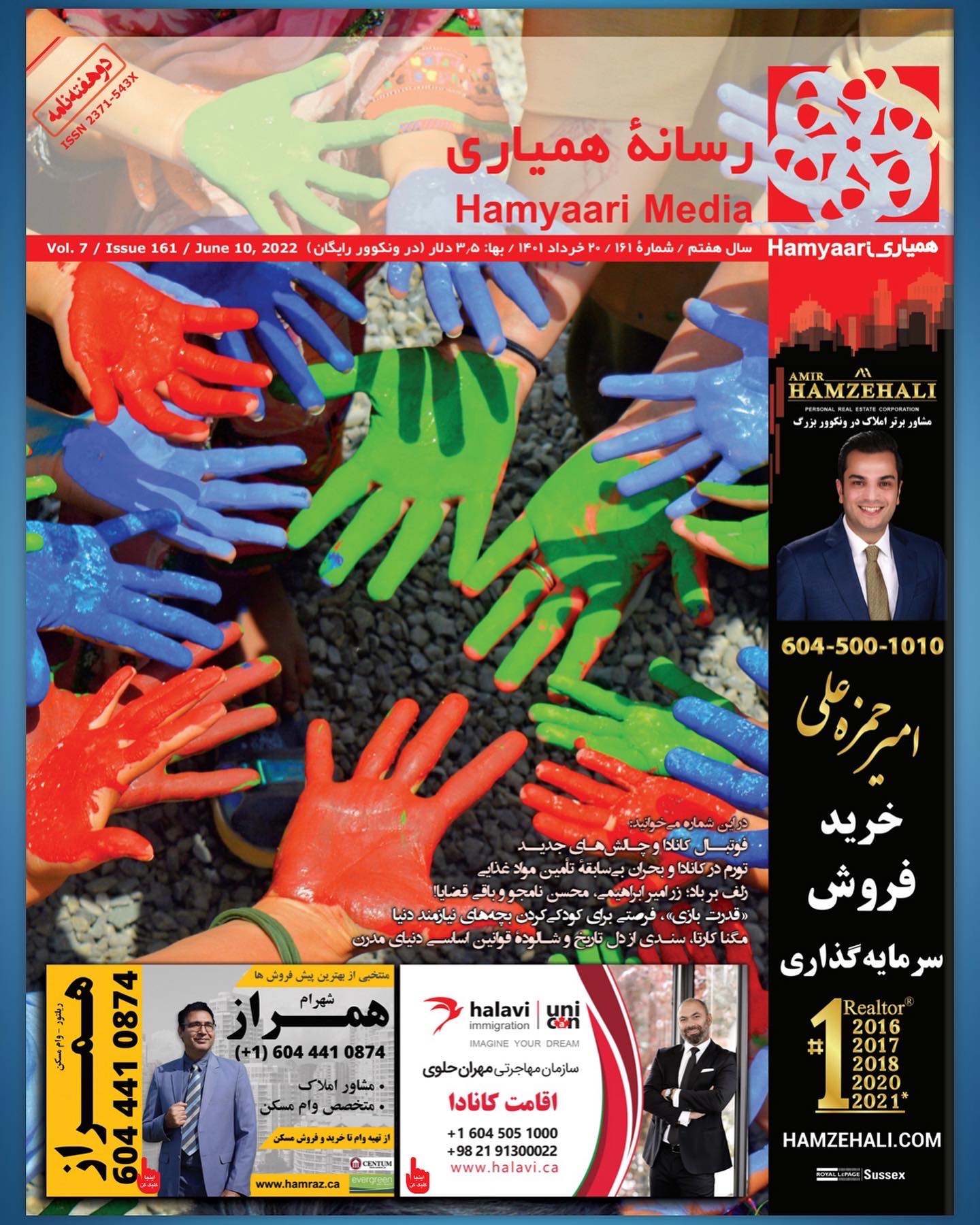

A conversation with Reza Marvastii, the director of the Power of Play charity.
The 61st print edition of “Hamiyari Media” is available at Iranian stores in Vancouver, North Shore, Tri-Cities, Bernaby, and Maple Ridge.
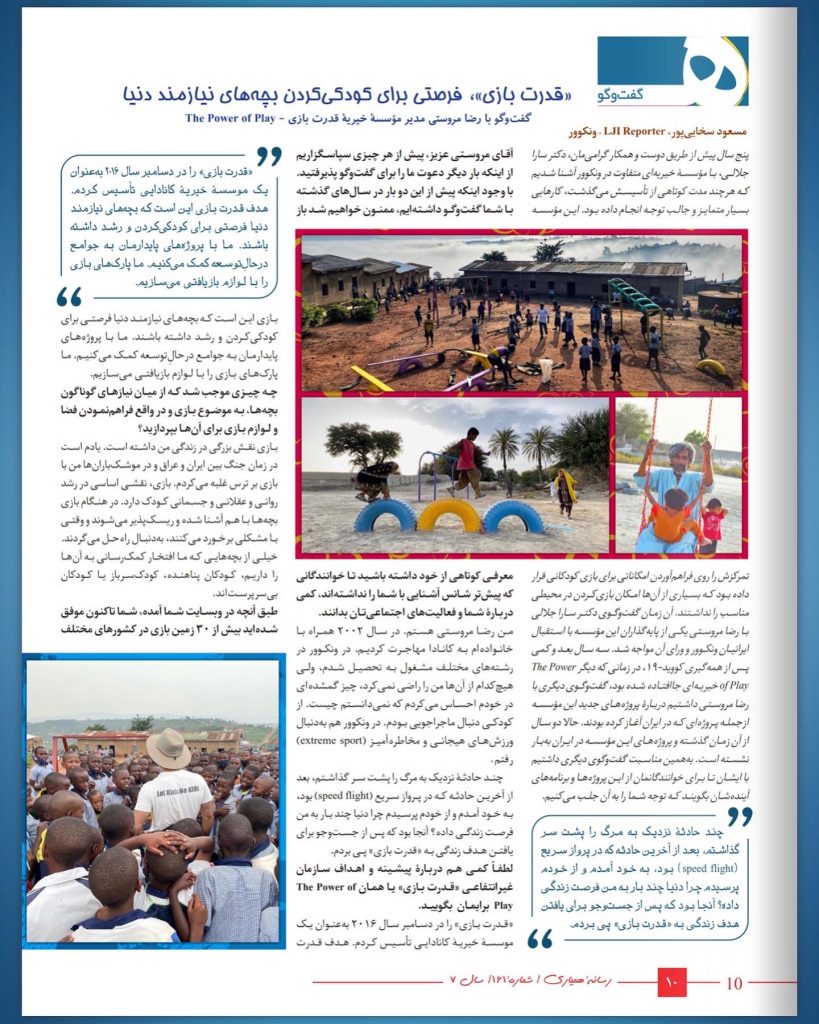
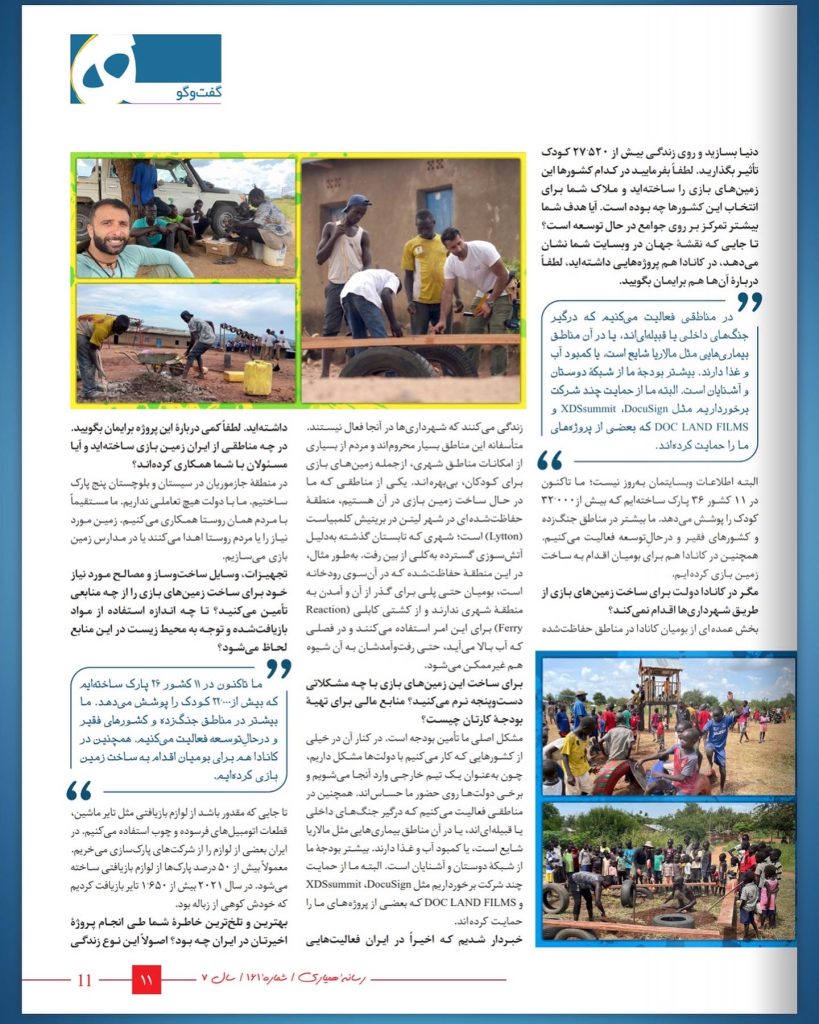
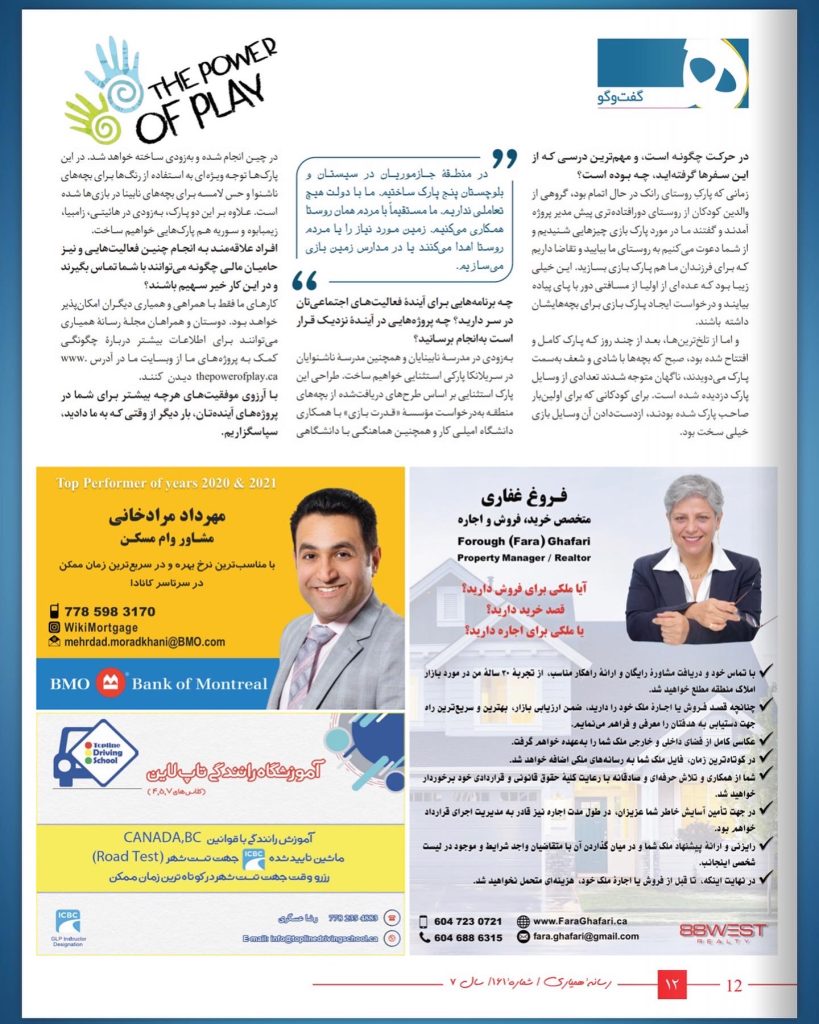
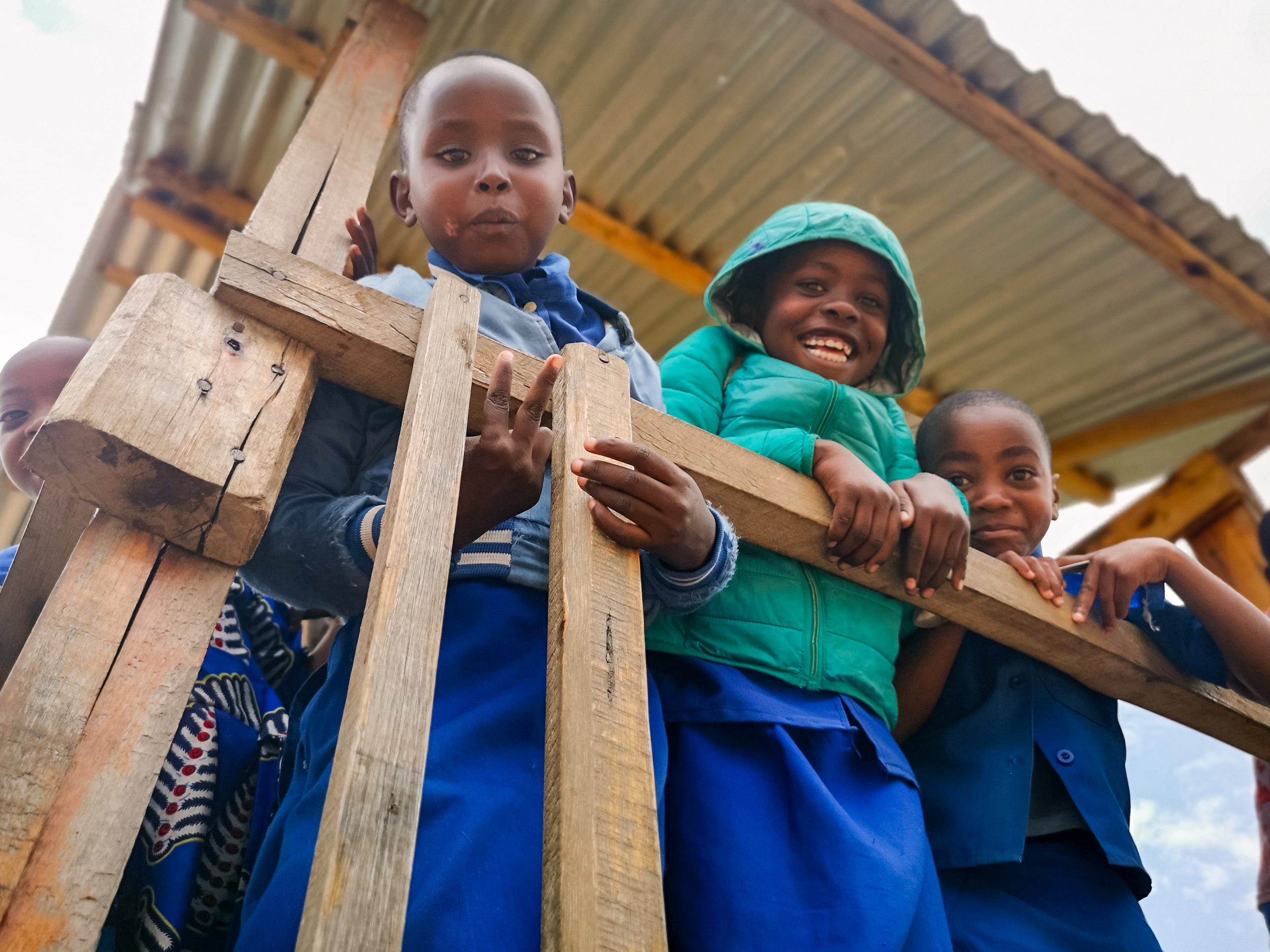
A Doc Land Films Production on The Power of Play [WATCH FULL VIDEO HERE!]
In our collective efforts, we possess the ability to transform the lives of future generations, building a brighter future, one playground at a time.
By contributing a mere $12, you can make a lasting impact at https://thepowerofplay.ca/donate/. Your generous donations empower children to embrace the joy of childhood, allowing them to simply be kids. Join us in making a difference!
We extend our heartfelt gratitude to @doclandfilms, @sofidm7, @stevenpriovolos_dp, @philgriffithsfilms, and @filmsbynomad for their unwavering support and unwavering dedication to our cause.
Together, let’s unlock the boundless potential of play and create a world where every child thrives.
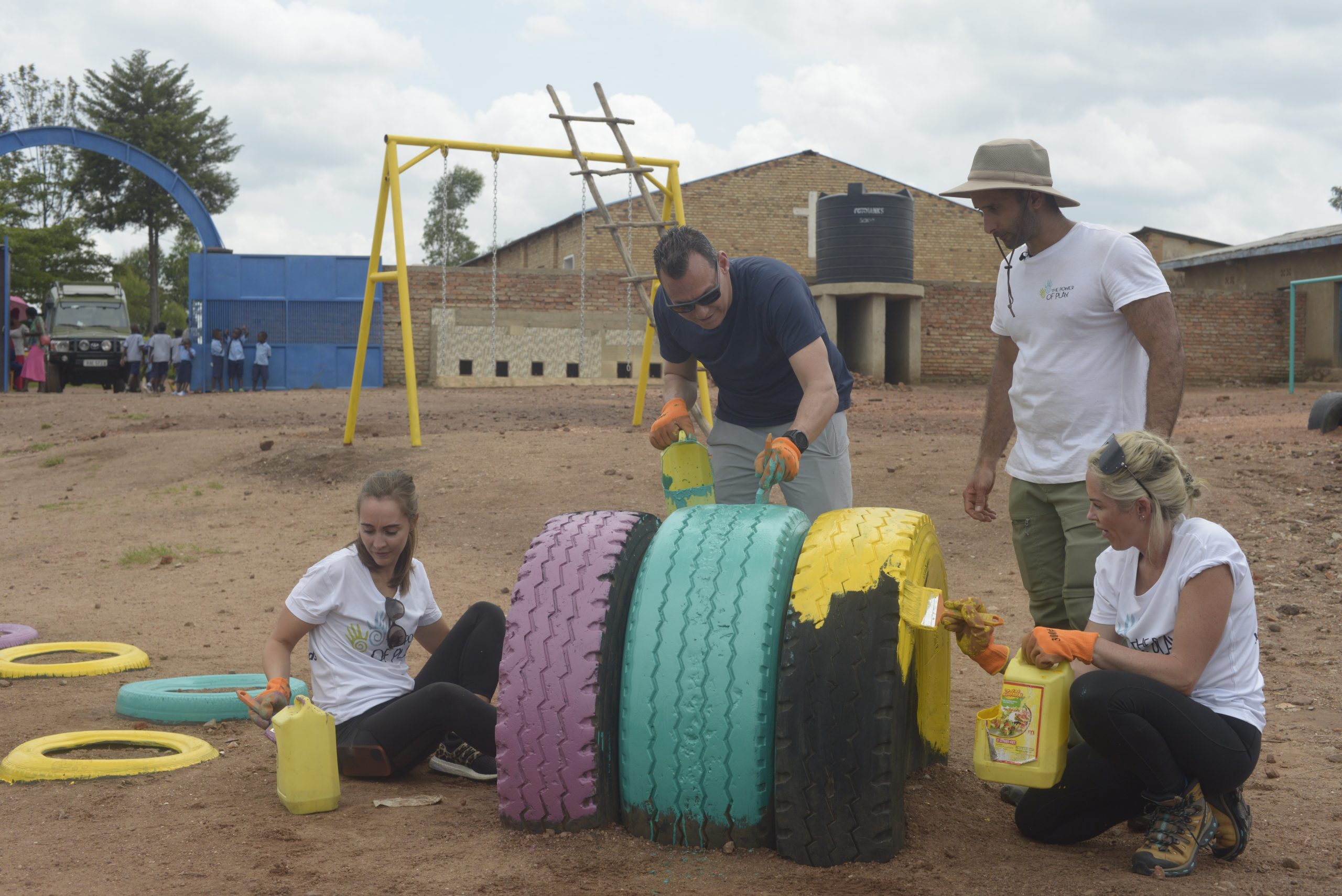
By doing this, kids rediscover childhood, process trauma, and make sense of the world through creativity and play.
In Spencer’s latest episode on the podcast, he talks with Reza about:
Spencer and his team came to Rwanda last month to help us build a playground. The time spent and getting to know Spencer was nothing short of wonderful. Huge THANK YOU to him and his team for supporting us on our mission to support every child’s right to learn and develop through the power of play. ![]()
Reza’s story and foundation are truly inspirational and I know his story will change your outlook on life. ![]()
Watch the video interview or listen to the full podcast here on your chosen platform.
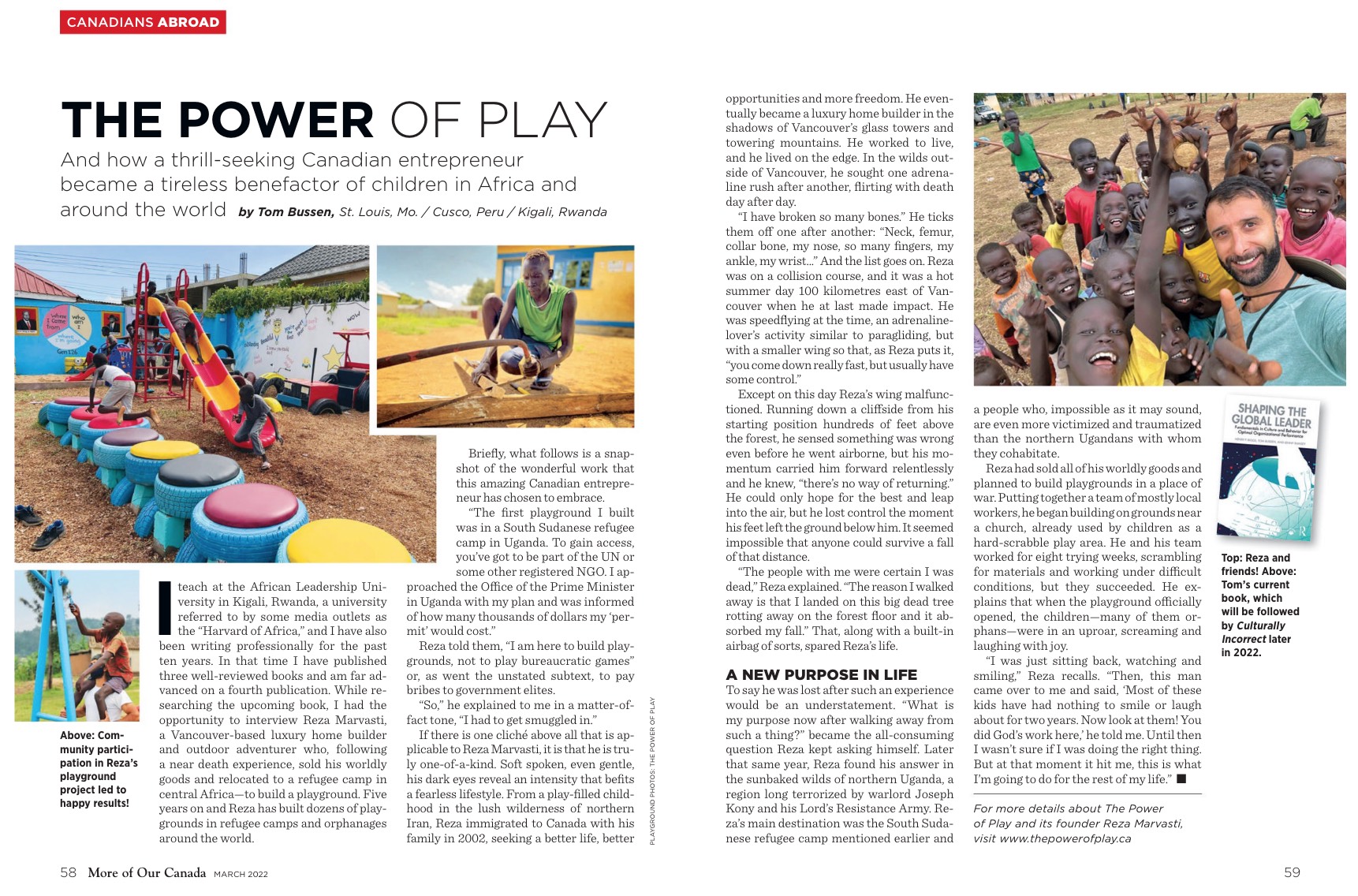
“The Power of Play and how a thrill-seeking Canadian entrepreneur became a tireless benefactor of children Africa and around the world”- written by Tom Bussen
Thank you, Tom, for this wonderful write up in Readers Digest Canada of TPOP’s Founder & CEO Reza Marvasti and the journey of how our wonderful organization came to be!
View the full March 2022 online issue HERE.
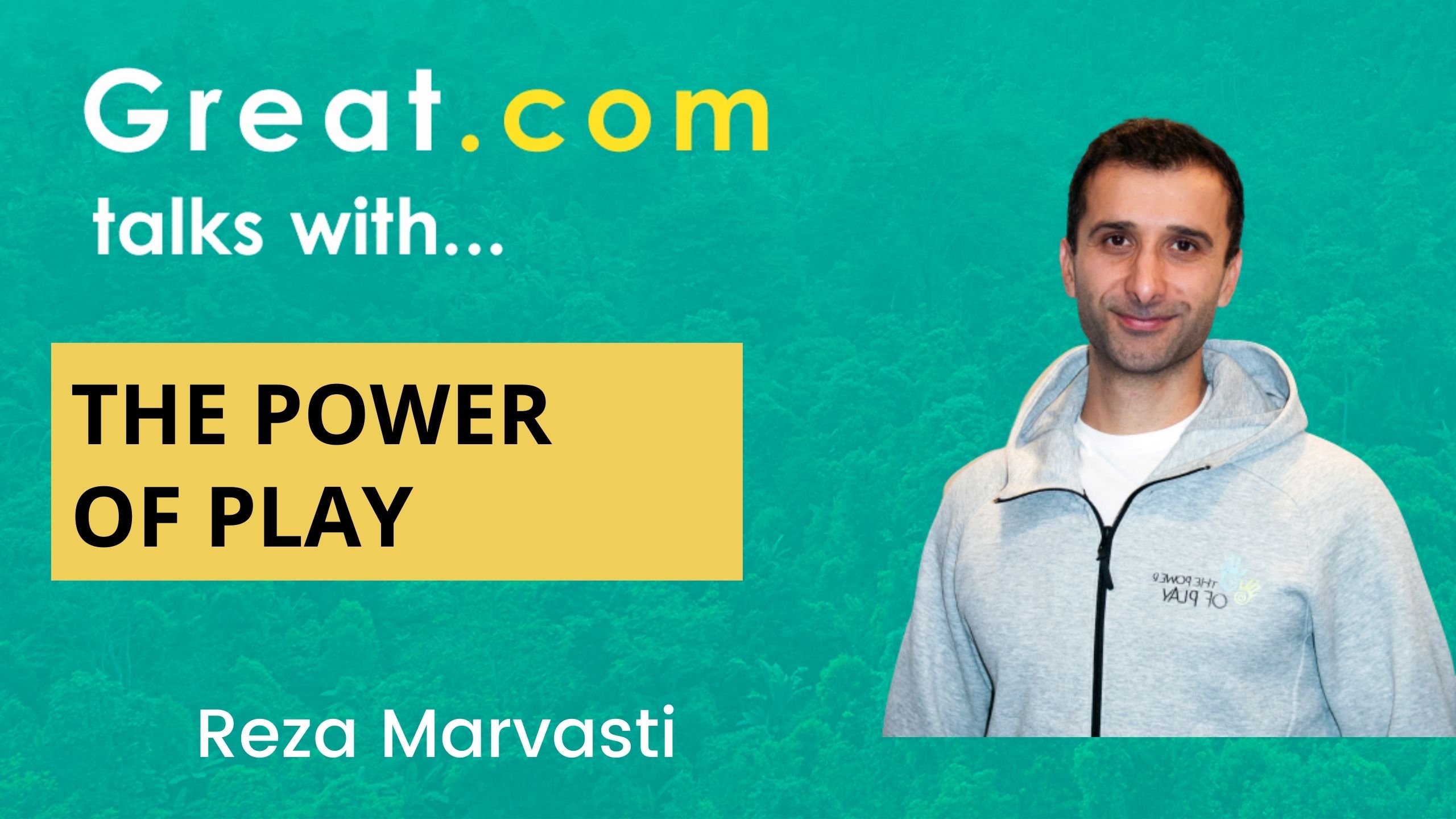
Danielle Riberio from Great.com interviewed The Power Of Play’s CEO and Founder, Reza Marvasti, as part of their ‘Great.com Talks With…‘ podcast. This series is an antidote to negative news stories that aims to shed light on organizations and experts whose work is making a positive impact on the world.
A playground is a relatively safe environment where kids can express themselves. You see children playing different games, from free play games to imaginary play games, pretend play, and active play. Playgrounds are essential for early childhood education and development. That’s why in this episode, Danielle spoke with Reza.
“We are a nonprofit organization that builds outdoor play areas.” Reza says that children explore the world through play. Kindergarten children play peek-a-boo to learn about the environment. But not just that, children learn about the world through play.
You can also watch the interview on The Power of Play Youtube here.
Our organization encourages playful learning through our playgrounds. It is a form of escapism that many young children need to cope with stress and trauma. If an adult needs therapy to cope with harmful effects, children need creative play, outdoor play, free play, and other forms to deal with the same effects.
Great.com is an organization aimed at solving the world’s most dire problem — global climate change. Starting in New Jersey, their mission is to take money from an otherwise harmful and greedy industry (online casinos) and move it towards a positive and good cause (solving the climate crisis). In addition to directly donating 100% of the revenue they earn in the casino industry, they also launch and manage fundraising campaigns to persuade casino entrepreneurs to donate. So far, they’ve generated over $2 million to climate research through their own donations and proceeds from their fundraising initiatives.
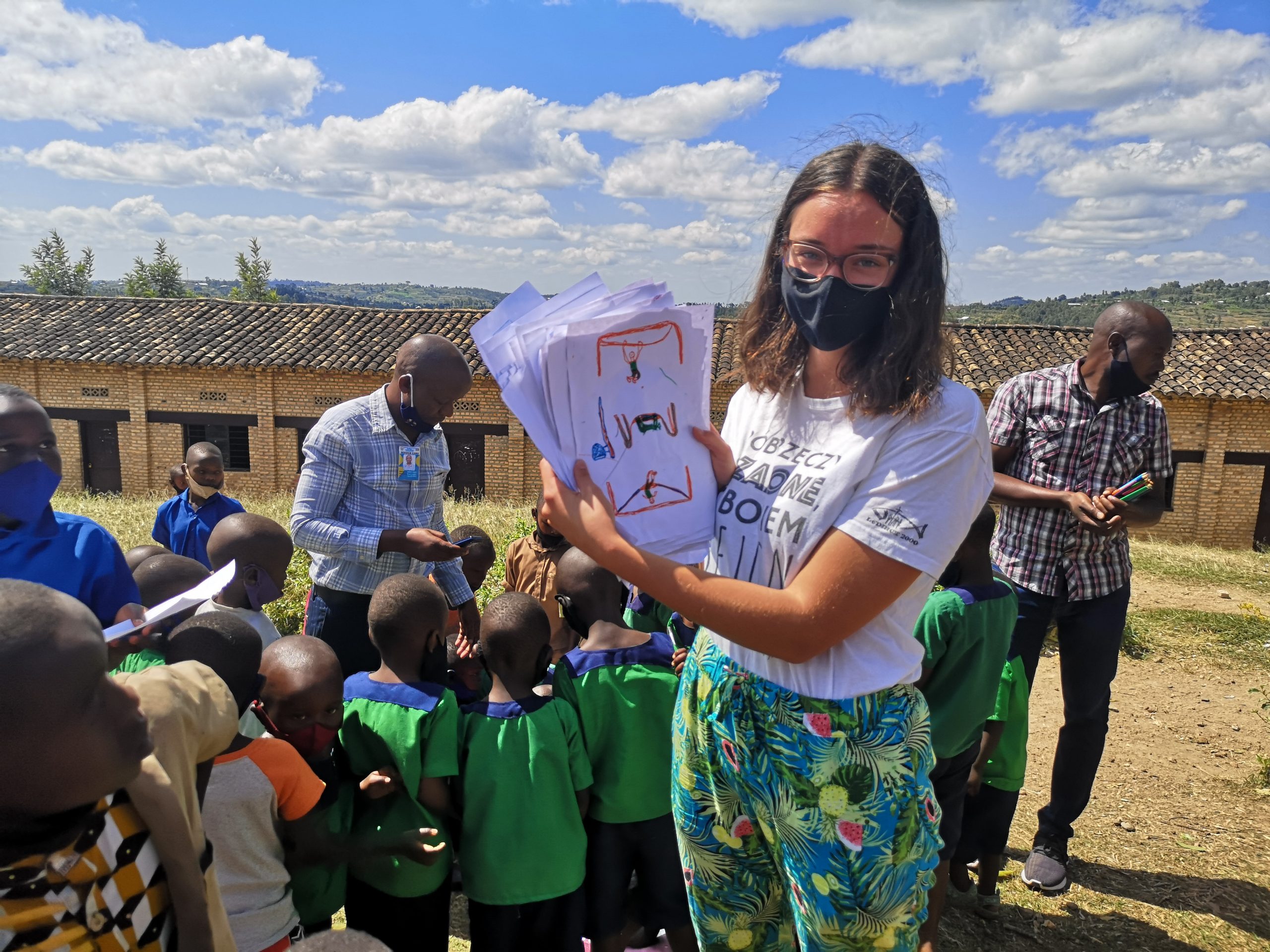

“Looking back, it seems like my life has been planned by design. Everything I have learned over the years—business management, construction, automotive and industrial design—I have fully utilized while building playgrounds for children.”

And so, Reza embarked on a mission to construct playgrounds for underprivileged children around the world. His goal was simple: to allow kids to be kids, regardless of their circumstances. Whether they were child soldiers, children of prisoners, or orphans in disadvantaged countries, Reza wanted them to grow up with the freedom to play and dream.
But what does it take to build a playground for children in these countries?
Over time, The Power of Play (TPOP) has honed a system for constructing sustainable playgrounds. This recipe for success consists of several crucial ingredients:
First and foremost, whenever TPOP ventures into a new country, it strives to connect with a local NGO that has already laid the groundwork, the road map to the playground should be also seen in the about us sector of the website. This partnership saves valuable time and resources. The local NGO is familiar with the areas where playgrounds are most needed. Playgrounds are built in locations that can impact at least 400 children in areas where access to playgrounds is limited. Such areas may include orphanages, prisons, low-income schools, and refugee camps. The local NGO also aids in securing free land for the playground, often owned by the aforementioned institutions. The idea is to avoid purchasing land, as managing it would be challenging and would divert financial resources from the playground structures. Depending on the available space, each playground consists of ten to sixteen play elements.
TPOP does not assume it knows what the children need. Instead, they engage with the community, offering their services and asking how they can cater to their specific needs. The projects are executed through community collaboration.

After selecting the location, TPOP interacts directly with the children, asking them how they like to play. This step is crucial as it ignites the children’s creativity. Through drawing and expressing their ideas, the children become the true designers of their playgrounds. Empowering them to shape their own play spaces gives them a voice and fosters a belief in their unique creative abilities.
To bring the children’s play ideas to life, TPOP has a catalog of multiple different tire structures. Each playground includes five essential elements:
Consideration is given to the age range of the children when designing a new playground, ensuring inclusivity. In some instances, a volleyball or football court is built adjacent to the children’s playground, providing space for older kids and teenagers to socialize and engage in physical activities together.
Once the final playground design is agreed upon, TPOP conducts a material breakdown and procures all the necessary components. Certain parts require welding, which is done at local welding shops. Subsequently, all the materials are transported to the playground site. TPOP takes pride in the fact that all its projects are completed using local labor and locally sourced materials. Through these projects, new skills are taught, positively impacting the local economies.

Thirdly, TPOP involves local individuals, including parents, teachers, and other volunteers, in the construction process. This inclusion fosters a sense of belonging and ownership among the community members. The locals take pride in building a playground for their children, which ensures that the playground receives proper care and maintenance. Additionally, community members have the opportunity to learn construction skills, fostering personal growth. Once the playground is built, children assist in painting it, gaining real-life experience and further strengthening their connection to the space <3.
After the completion of the construction, a maintenance guide is provided for a local individual chosen to oversee the care of the playground. Through proper maintenance, these playgrounds can last for an average of eight to ten years.
If the playground is constructed within an institution, such as a school or orphanage, the institution provides TPOP with a report detailing how the playground is utilized and its impact on the children’s development.

Furthermore, TPOP ensures that all materials and workers are sourced locally. The organization repurposed materials like cars and primarily used tires, taking advantage of the abundance of discarded tires in many countries. Acquiring used tires can be challenging in these regions, as they are often repurposed for items like sandals or carpets.
TPOP also provides training for its local workforce, offering valuable experience in project management, carpentry, welding, and teamwork. Typically, TPOP builds a minimum of four playgrounds in each country, allowing workers to receive comprehensive training and potentially seek other construction opportunities afterward. These trained workers are compensated with fair wages, enabling them to support their families.
Lastly, the cost of constructing a playground varies depending on the country and its size, but on average, it amounts to approximately CAD 20,000.
Now, armed with knowledge about the process of building children’s playgrounds in impoverished countries, you understand the extensive preparation and resources required. While not everyone can directly participate in the preparation phase, there are opportunities to contribute financially. If you feel compelled to be a part of the next playground project and bring smiles to children’s faces, you can make a donation here (link).
Together, we can make a difference and create spaces where children can experience the joy and wonder of play.
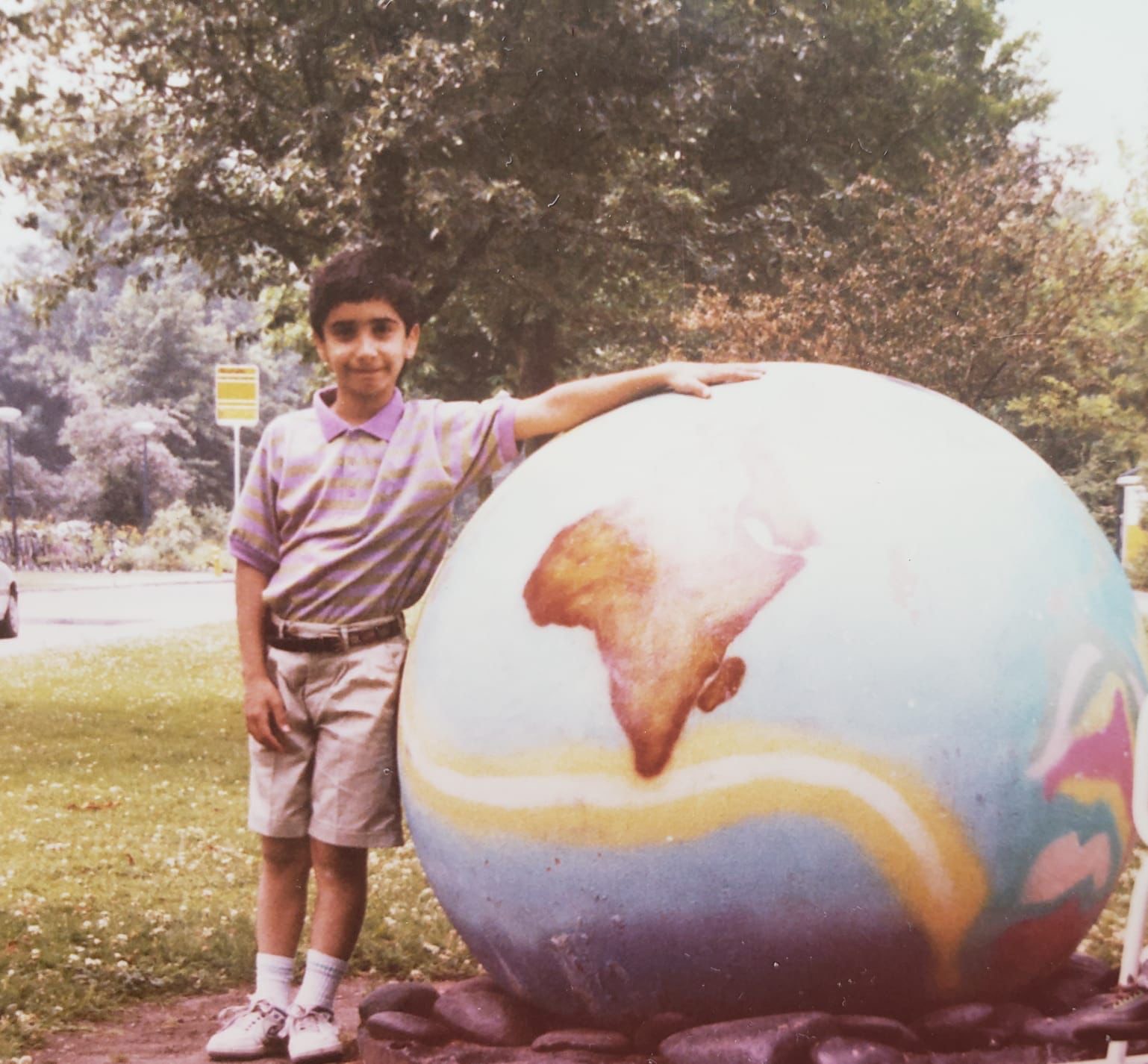
Warzone Childhood Inspires Reza to Establish a Children’s Non Profit
Imagine enduring long hours in a bomb shelter as a young child, surrounded by fearful adults, unsure of what the future holds for you and your family. Even with a loving family,such experiences leave emotional scars, unless one discovers a way to cope with such circumstances.
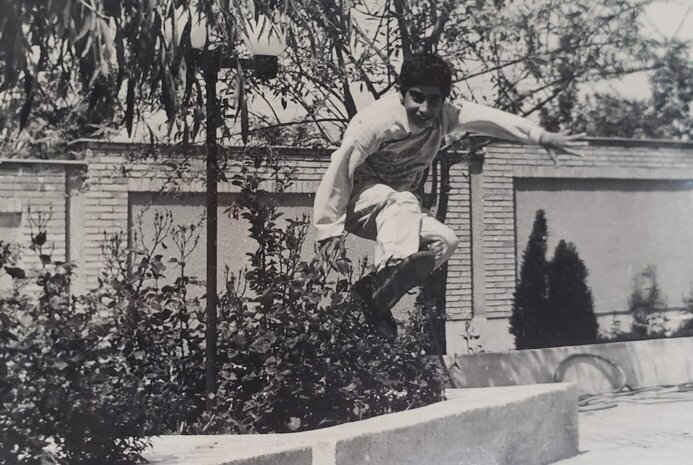
Reza was born in Iran during a tumultuous period.His country was embroiled in the eight-year Iraq-Iran war. In 1980, Iraq launched an attack on Iran, seeking control over the oil-rich lands near the Iranian border. Supported by numerous Middle Eastern and Western nations, Iraq had significant backing, while Iran had relatively little. With most able-bodied men serving in the military, the casualties were numerous.
Even if you haven’t experienced war firsthand, you can imagine the hardships of living in a warzone, especially when it comes to raising children. How does one shield them from suffering? Where does one find sufficient food and clean water? And what happens if your home is bombed, leaving your children without a safe place to sleep?
This was the reality in the 1980s, long before smartphones and tablets dominated children’s lives. Back then, outdoor play was the norm. Reza and his friends would roam the neighborhood, engaging in games and activities throughout the day. Life seemed somewhat normal, similar to any other country at the time. However, that illusion was shattered every time the piercing sound of the siren, all too familiar to everyone, wailed through the air. It was a signal for families to rush to the shelter and seek refuge, striving to survive.
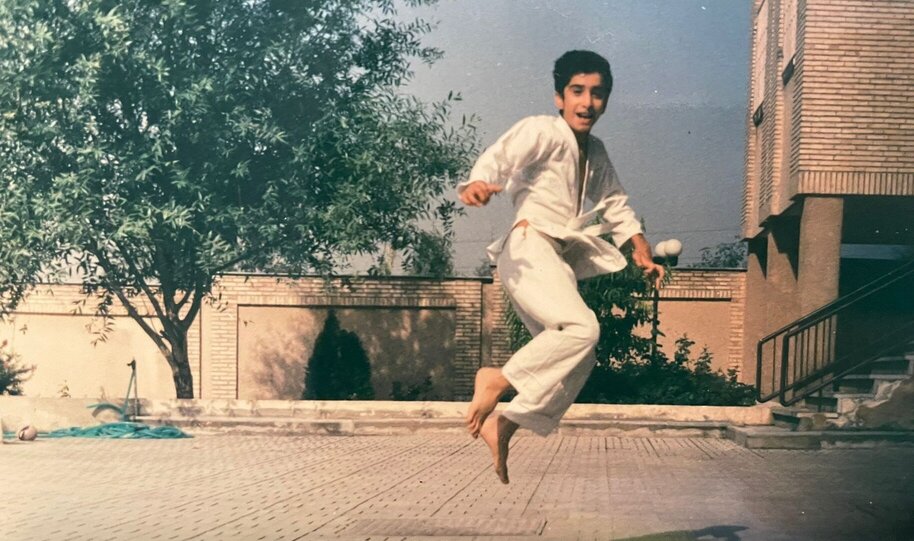
Reza’s extended family had access to a shelter where they sought safety during air raids. As darkness enveloped the space, the adults would tape the windows to prevent the glass from shattering and endangering children’s lives. The air inside became thick with heat and a sense of anticipation, drenched in fear and anxiety that gripped every individual. Fortunately, with each passing night of survival unscathed, the intensity of fear and anxiety gradually diminished. Humans have a remarkable ability to adapt to even the most challenging circumstances, despite lingering trauma…
Young Reza displayed an extraordinary fearlessness amidst the chaos. He eagerly organized games of hide and seek under the shelter’s tables, rallying his cousins to participate.
Although some adults viewed his behavior as mischievous, it stemmed from a deeper purpose. Unbeknownst to him, Reza instinctively understood that engaging in play would divert children’s attention away from the fear and anxiety that haunted their existence. Amidst the warzone, Reza discovered the power of finding moments of lightness and shared this gift with others. His coping mechanism through play shielded him from the long-lasting effects of post-traumatic stress disorder (PTSD) in adulthood. Sadly, not all of his childhood friends were as fortunate.
Five years ago, Reza had an epiphany: the coping mechanism he developed during his own childhood could serve as a lifeline for other children facing similar circumstances. Motivated by this realization, he established a non-profit aimed at restoring children’s right to a genuine childhood, allowing them to experience the joys of play. If you’re curious about the remarkable journey that led Reza to achieve this noble endeavor, continue reading our blog for more inspiring details!

 Play it forward
Play it forward